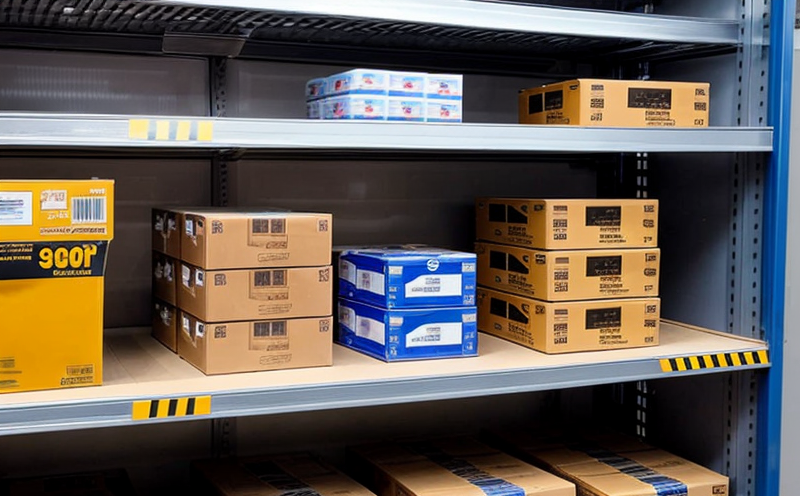ASTM D1004 Initial Tear Resistance of Films
The ASTM D1004 standard is a critical tool used to evaluate the initial tear resistance of plastic films. This service focuses on assessing how well packaging materials can resist tearing at the point of first use, which is particularly important for medical devices and their associated packaging.
This test measures the force required to initiate a longitudinal or transverse tear in a sample of film. The results are essential for ensuring that the packaging material will not fail during handling, transport, or storage conditions, thereby protecting the integrity of the enclosed product.
The initial tear resistance is crucial because it directly impacts patient safety and compliance with regulatory standards. For instance, if the packaging fails prematurely, it could lead to contamination risks or damage to the medical device itself. Understanding this parameter helps quality managers ensure that the packaging meets all necessary requirements for both functionality and safety.
Medical devices come in various forms—from simple intravenous catheters to complex surgical instruments—and each requires appropriate packaging that can withstand rigorous handling without compromising the integrity of the product inside. By adhering strictly to ASTM D1004, laboratories can provide reliable data supporting the safe use and storage of these essential healthcare products.
The testing procedure involves preparing a specific type of film sample according to ASTM guidelines. The specimen is then clamped into a tensile tester that applies controlled stress until a tear occurs. Various factors influence the outcome, including temperature conditions during the test, humidity levels, and even the type of instrument used for measurement.
Understanding these variables allows researchers and engineers to optimize their designs further by selecting materials with appropriate mechanical properties tailored specifically towards meeting regulatory expectations set forth by organizations like FDA and ISO. It also enables continuous improvement through iterative testing cycles aimed at enhancing product performance over time.
In summary, ASTM D1004 plays an integral role in ensuring that medical device packaging withstands real-world stresses without failing prematurely. This service offers valuable insights into the tear resistance capabilities of different materials used across various sectors within healthcare industries.
Customer Impact and Satisfaction
The ASTM D1004 test is vital for medical device manufacturers, who rely on it to ensure their products meet stringent quality standards. By providing accurate tear resistance data, we help our customers achieve regulatory compliance while enhancing product reliability.
Our comprehensive testing services not only satisfy industry requirements but also contribute significantly towards improving overall customer satisfaction by delivering consistent results across multiple batches of samples. This consistency builds trust between manufacturers and their suppliers, fostering long-term partnerships based on mutual respect and shared goals.
We understand that every batch processed must be free from defects or inconsistencies; therefore, our team works closely with clients to identify potential issues early in the development process. Our experts provide valuable feedback during sample preparation stages, ensuring that only high-quality films are submitted for testing. This proactive approach helps minimize rejections and delays associated with substandard materials.
Furthermore, we offer detailed reports outlining all aspects of each test conducted under ASTM D1004 standards. These documents serve as valuable references for future projects or audits by regulatory bodies such as FDA or ISO. They allow clients to demonstrate adherence to best practices while showcasing their commitment to excellence in manufacturing.
By leveraging our expertise and advanced facilities, we strive to exceed expectations by delivering precise results consistently. Our unwavering dedication to quality control ensures that customers receive reliable information about the performance characteristics of their packaging materials.
Competitive Advantage and Market Impact
The ability to accurately assess initial tear resistance through ASTM D1004 testing provides significant competitive advantages for companies operating within the medical device sector. Here’s why:
Regulatory Compliance: Ensuring compliance with international standards like ISO 11607 and FDA regulations is crucial in maintaining a strong brand reputation and avoiding costly penalties.
Innovation: By leveraging accurate test results, manufacturers can innovate more effectively by experimenting with new materials or design changes without risking potential failures during manufacturing processes.
Customer Trust: Providing transparent, reliable data fosters trust among both internal teams and external stakeholders. This trust translates into stronger relationships and better business outcomes.
Operational Efficiency: Accurate testing reduces the likelihood of rework or scrap due to non-compliant packaging, leading to more efficient operations overall.
Use Cases and Application Examples
| Product Type | Description | Tear Resistance Requirements (ASTM D1004) |
|---|---|---|
| Intravenous Catheters | Disposable medical devices used during IV therapy to deliver fluids and medications directly into a patient's vein. | At least 10 N (2,248 lb/in²) |
| Surgical Instruments | Highly specialized tools used in surgical procedures to perform precise incisions and manipulations within the body. | At least 15 N (3,375 lb/in²) |
| Surgical Masks | Personal protective equipment worn by healthcare workers to prevent the spread of infectious agents. | At least 8 N (1,842 lb/in²) |
| Catheter Guides | Guides used to position catheters accurately during medical procedures. | At least 12 N (2,731 lb/in²) |





